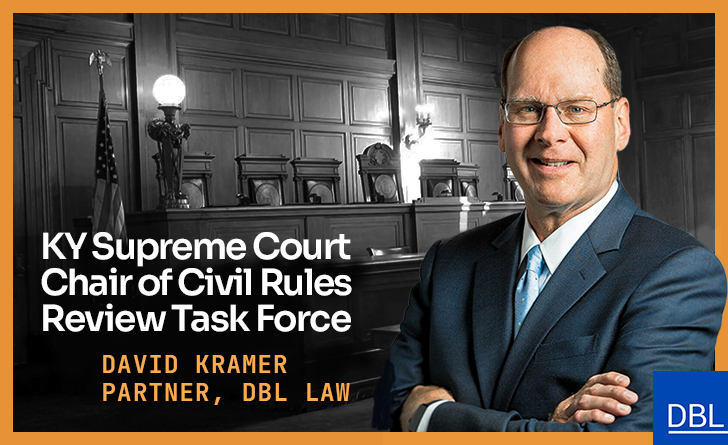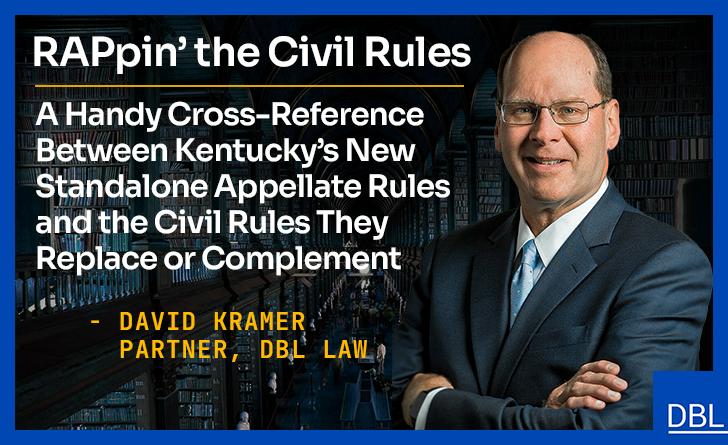Modern federal jurisprudence governing the required standard for stating a cause of action in a complaint has imposed a higher pleading burden on a plaintiff than previous case law. Under the United States Supreme Court’s decisions in Bell Atlantic Corp. v. Twombly, 550 U.S. 544 (2007), and Aschcroft v. Iqbal, 556 U.S. 662 (2009), interpreting FRCP 8(a), a plaintiff must show the “plausibility” of a cause of action by offering enough facts to raise a reasonable expectation that discovery would reveal sufficient evidence to sustain the complaint. This heightened standard replaced the former “no set of facts” standard that federal courts utilized beginning with the Supreme Court’s decision in Conley v. Gibson, 355 U.S. 41 (1957). Most states, including Kentucky, subsequently adopted that standard, also known as “notice pleading.”
Kentucky’s CR 8.01(1), like its federal counterpart, requires a pleader to make a “showing” that he or she is “entitled” to the relief sought. While Kentucky appellate courts have not yet expressly adopted the plausibility pleading requirements of the Twombly and Iqbal decisions and their progeny or formally abrogated the former notice-pleading standard of Conley, both the Kentucky Supreme Court and the Kentucky Court of Appeals have cited Twombly and/or Iqbal with approval in recent years. In a footnote in McDaniel v. Com., 495 S.W.3d 115 (Ky. 2016), the Kentucky Supreme Court cited Iqbal and Twombly in noting that an argument that an unpled claim had been adequately stated by implication and thus was properly preserved for appeal “does not comport with an adequate understanding of notice pleading and its requirements ….” Id. at 121 n. 6. The Kentucky Court of Appeals had previously relied on Twombly in an unpublished opinion affirming a trial court’s holding that a pro se litigant had failed to state a claim, and quoted parts of the Twombly opinion stating that “a formulaic recitation of the elements of a cause of action will not do.” Espinosa v. Louisville/Jefferson Cnty. Metro Gov’t, 2009 WL 277488, at *1 (Ky. App. 2009). (See CR 76.28(4)(c) relating to citation of unpublished opinions.)
In light of these citations, Kentucky practitioners would be well advised to meet the federal pleading standard in making a claim for relief in state court in order to assure that it is satisfactory under CR 8.01(1), at least until a Kentucky appellate court affirmatively rejects the federal courts’ interpretation of FRCP 8(a). Meeting the federal pleading standard is particularly important in a state court action if there is any prospect of removal to federal court since in most circumstances federal courts will apply federal pleading standards once a case is removed. See, e.g., Maness v. Boston Scientific, 751 F.Supp.2d 962 (E.D. Tenn. 2010).
Defendants who wish to challenge the sufficiency of a plaintiff’s pleadings in a Kentucky state-court civil action may file a motion to dismiss in lieu of an answer under CR 12.02, although such a dispositive motion may be made at any time up until trial under CR 12.08.
NOTE: The foregoing post includes commentary reprinted from the forthcoming 2017 supplement to 6 Philipps & Kramer, Rules of Civil Procedure Annotated, 6th ed. (Kentucky Practice Series), by David V. Kramer, with permission of the author and publisher. Copyright (c) 2017 Thomson Reuters. For more information about this publication click here.
David Kramer is a Partner and Chair of the Litigation Section in the law firm of Dressman Benzinger LaVelle psc, with offices in Cincinnati, Ohio, and Crestview Hills and Louisville, Kentucky.



